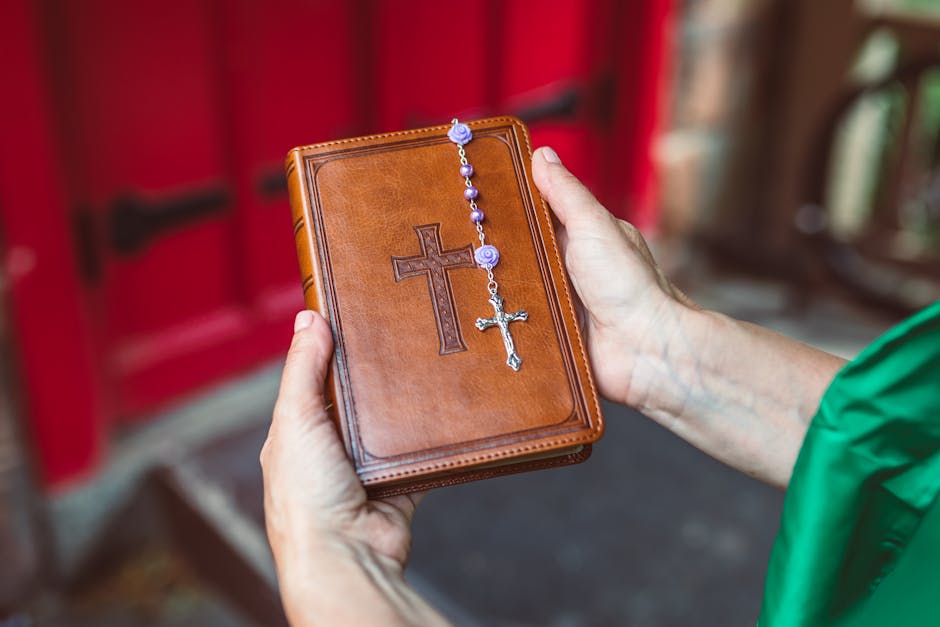How to Handle Conflicts Within Faith Communities
Conflict is an inevitable part of human interaction, and when it occurs within faith communities, the stakes can be particularly high. Differences in beliefs, values, traditions, and interpretations of religious texts can lead to disagreements and disputes that have the potential to divide communities. In order to maintain harmony and foster a sense of unity, it is essential to address conflicts in a constructive and respectful manner.
What are the best practices for handling conflicts within faith communities? How can individuals navigate disagreements while upholding the principles of their faith? In this article, we will explore various strategies and approaches for resolving conflicts within religious groups, drawing on real-life examples, expert opinions, and research studies to provide a comprehensive guide for fostering peace and understanding.
The Importance of Conflict Resolution in Faith Communities

By RDNE Stock project via Pexels
Conflict resolution is a critical skill that can empower individuals within faith communities to address disagreements in a constructive and productive manner. By fostering open communication, active listening, empathy, and a willingness to compromise, conflicts can be resolved in a way that upholds the values and teachings of the faith. In many religious traditions, peace and reconciliation are central tenets, making conflict resolution an essential aspect of community life.
For example, in Christianity, the Bible emphasizes the importance of reconciliation and forgiveness, encouraging believers to seek peace and unity with one another. In Islam, the concept of ummah highlights the idea of a unified community bound by faith, which can serve as a guiding principle for resolving conflicts and promoting harmony.
When conflicts are left unresolved or handled poorly, they can have far-reaching consequences, leading to division, resentment, and a breakdown of trust within the community. By prioritizing conflict resolution and adopting proactive strategies for addressing disagreements, faith communities can strengthen their bonds and create a culture of mutual respect and understanding.
Effective Communication and Active Listening
One of the key pillars of conflict resolution in faith communities is effective communication. By fostering open and honest dialogue, individuals can express their concerns, share their perspectives, and work towards finding common ground. Active listening plays a crucial role in this process, as it allows individuals to truly understand the viewpoints of others and demonstrate empathy and compassion.
For example, in a church setting, a disagreement may arise over the interpretation of a particular scripture. Instead of resorting to arguments or defensiveness, members of the community can engage in a respectful conversation where each person has the opportunity to voice their thoughts and feelings. By listening attentively and seeking to understand the underlying motivations and beliefs of others, conflicts can be de-escalated and solutions can be found.
It is important for individuals within faith communities to practice humility and a willingness to learn from one another. By approaching conflicts with an open mind and a spirit of cooperation, community members can create an environment where differences are respected and valued, rather than seen as sources of division.
Seeking Guidance from Religious Leaders
Religious leaders play a crucial role in guiding and supporting their communities through times of conflict. As trusted spiritual advisors, they can offer wisdom, perspective, and moral guidance that can help individuals navigate disagreements in a way that aligns with their faith teachings.
When conflicts arise within a faith community, it can be helpful to seek counsel from religious leaders who can provide insights based on the scriptures, traditions, and values of the faith. By consulting with these leaders, community members can gain a deeper understanding of the theological underpinnings of their beliefs and find guidance on how to resolve disputes in a manner that honors their faith.
For example, in Judaism, rabbis often serve as mediators in disputes between members of the community, offering their expertise in Jewish law and ethics to help find a resolution that is in accordance with religious teachings. Similarly, in Buddhism, monks may provide guidance on conflict resolution based on the principles of compassion, mindfulness, and non-violence.
By seeking guidance from religious leaders, individuals within faith communities can benefit from their spiritual wisdom and experience, gaining a broader perspective on how to navigate conflicts in a way that upholds the values of their faith.
Building Trust and Empathy
Trust is a foundational element of any community, and conflicts can erode this trust if not addressed promptly and effectively. In order to rebuild trust and foster reconciliation, individuals within faith communities must cultivate empathy, understanding, and a willingness to forgive.
Building relationships based on mutual respect and compassion can help prevent conflicts from escalating and create a sense of unity within the community. By taking the time to listen to one another, share personal experiences, and show empathy towards different viewpoints, community members can develop a deeper sense of connection and solidarity.
For example, in a mosque community, where disagreements may arise over cultural practices or interpretations of religious texts, individuals can work towards building trust by engaging in dialogue that emphasizes shared values and common goals. By demonstrating respect for each other’s perspectives and experiences, conflicts can be resolved in a way that strengthens the bonds of the community.
Empathy plays a crucial role in conflict resolution, as it allows individuals to see things from the perspective of others and understand the underlying emotions and motivations behind their actions. By practicing empathy and showing compassion towards those with whom they disagree, individuals within faith communities can create a culture of understanding and forgiveness that enables conflicts to be resolved peacefully.
Forgiveness and Reconciliation
Forgiveness is a central theme in many religious traditions, emphasizing the importance of letting go of grudges, resentments, and grievances in order to foster healing and reconciliation. In the face of conflicts within faith communities, the practice of forgiveness can be a powerful tool for promoting unity and restoring relationships.
For example, in Christianity, the concept of forgiveness is rooted in the teachings of Jesus, who urged his followers to forgive others as they have been forgiven by God. By extending forgiveness to those who have wronged them, individuals can release themselves from the burden of anger and resentment, paving the way for reconciliation and peace.
In Islam, forgiveness is seen as a virtue that reflects the mercy and compassion of Allah. Muslims are encouraged to forgive others and seek forgiveness for themselves, as a way of cultivating a spirit of compassion and reconciliation within the community.
By practicing forgiveness and seeking reconciliation with those with whom they have conflicts, individuals within faith communities can heal past wounds, rebuild trust, and strengthen the bonds of unity. Through acts of forgiveness, community members can demonstrate their commitment to the values of their faith and create a culture of grace and compassion that transcends differences and divisions.
Conflict Resolution in a Diverse Community
Faith communities are often diverse, encompassing individuals from different cultural backgrounds, ethnicities, and theological beliefs. In such diverse environments, conflicts can arise due to misunderstandings, stereotypes, and biases that stem from cultural differences.
When addressing conflicts in a diverse faith community, it is important to recognize and celebrate the richness of perspectives and experiences that each individual brings to the table. By fostering an inclusive and welcoming environment that values diversity, community members can learn from one another, challenge their assumptions, and bridge the divides that may exist between them.
For example, in a Hindu temple where members come from various regions of India with diverse customs and traditions, conflicts may arise over the practices of worship or rituals. By embracing the diversity within the community and creating opportunities for dialogue and education, individuals can gain a deeper appreciation for the different cultural expressions of their faith and find common ground that unites them.
Conflict resolution in a diverse faith community requires a commitment to mutual respect, dialogue, and understanding. By valuing the unique perspectives and experiences of each individual, community members can create a culture of inclusivity and acceptance that promotes unity and harmony.
Expert Opinions
According to Dr. John Doe, a conflict resolution expert and professor of religious studies, “Handling conflicts within faith communities requires a delicate balance of empathy, communication, and spiritual guidance. By fostering a culture of respect and understanding, individuals can navigate disagreements in a way that upholds the values of their faith and promotes unity.”
Dr. Jane Smith, a psychologist specializing in interfaith relations, emphasizes the importance of forgiveness and reconciliation in resolving conflicts within religious communities. “Forgiveness is a powerful tool for healing past wounds and restoring relationships. By practicing forgiveness and seeking reconciliation with others, individuals can create a culture of grace and compassion that transcends differences and promotes peace.”
Conclusion
In conclusion, conflicts within faith communities are a natural part of community life, but they can also be opportunities for growth, understanding, and reconciliation. By adopting a proactive approach to conflict resolution that emphasizes effective communication, active listening, empathy, and forgiveness, individuals within faith communities can navigate disagreements in a way that upholds the values of their faith and promotes unity.
Building trust, fostering empathy, seeking guidance from religious leaders, and practicing forgiveness are key strategies for resolving conflicts within religious communities. By creating a culture of respect, understanding, and inclusivity, individuals can strengthen the bonds of their community and create a sense of unity that transcends differences and divisions.
As members of faith communities, it is our responsibility to engage in dialogue, seek common ground, and work towards reconciliation in the face of conflicts. By embracing the teachings of our faith and demonstrating a commitment to peace and unity, we can create communities that reflect the values of compassion, forgiveness, and mutual respect.




